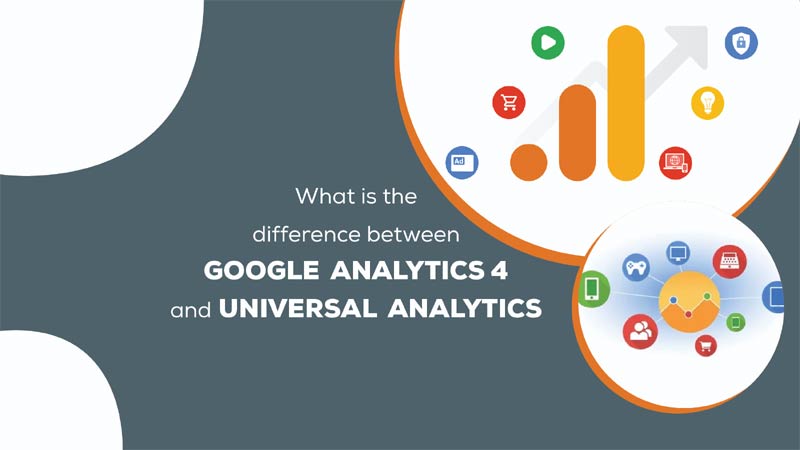What is the difference between Google Analytics 4 and Universal Analytics?
With the upcoming Google Analytics 4 release, the question of what is the difference between Google Analytics 4 and Universal Analytics is more relevant than ever. Since the Google Analytics team announced version 4 back in February, there has been confusion about what to expect when GA4 releases and whether you need to take any action if you have already installed Universal Analytics.
Google Analytics is a free service offered by Google that enables businesses to get detailed reports about their site's traffic and usage. The name of the service was changed from Google Analytics to Universal Analytics to unify the data collection for different web properties. It’s used by millions of websites to better understand their visitors, optimize the user experience, and increase conversions.
What is Google Analytics 4(GA4)?
The next-generation measurement system Google Analytics 4, replaces Universal Analytics. From July 1, 2023, Universal Analytics properties will not process new hits. As a result, it would be good to prepare for the transition from Universal Analytics to Google Analytics 4.
Google describes it as an enhanced version of its famous data collection and traffic analysis software. Google Analytics 4 is very different from the traditional ‘Universal’ Analytics.
Many vital features make Google Analytics 4 very different from its predecessor. One of the main differences is the new data modeling feature, which uses AI to fill in data gaps where cookie consent rules might block traditional Analytics, block JavaScript, or focus on privacy.
Moreover, Google Analytics’ new default interface is very different from what it used to be. According to Google, the new Google Analytics provides a next-generation approach to privacy-first tracking, cross-channel measurement, and artificial intelligence-based predictive data at the same time.
Google Analytics draws data for website traffic and user behavior by applying Google’s advanced machine learning models rather than relying on hits coming from every page.
Google Analytics 4 is built on the same platform as Google Analytics 2019 and its “App + Web” system. It was primarily focused on cross-channel data, which meant that users could be tracked across apps, software, and websites. This means that its primary goal is to change how data is presented to focus more on users – namely, the user journey from the first visit to the final conversion.
What Is Universal Analytics?
Universal Analytics is the present version of Google’s web analytics platform. It was introduced at the end of 2012 as a replacement for Google Analytics v3 (GAV3), in use since 2007. This version has several significant changes that make it more powerful and easier to use than its predecessor.
Universal Analytics tracks all devices that access your website — not just computers with traditional browsers — so it captures mobile devices and tablets, and PCs with full browsers like Chrome or Internet Explorer.
It also makes it much easier to track eCommerce transactions to see how often people add products to their shopping carts but don’t buy anything; this information can help improve your conversion rates and increase sales revenue.
Here are some of the most important differences between Google Analytics 4 vs. Universal Analytics.

Comments
Post a Comment